BEOGRAD, 20.09.2018. – Svedočenje Dragana Kecmana, jedinog policijskog službenika koji je od dana kada je ubijen novinar Slavko Ćuruvija radio na rasvetljavanju ovog zločina, i dalje je neizvesno, iako se Kecman od samog početka suđenja za Ćuruvijino ubistvo, od juna 2015. godine, nalazi na spisku svedoka koje je predložilo Tužilaštvo za organizovani kriminal.
Njega je pre nekoliko meseci kao svedoka predložio i Vladimir Marinkov, advokat prvooptuženog Radeta Markovića.
U nastavku suđenja – u petak, 21. septembra, kao i na još dva ročišta ovog meseca (25. i 26) – pred sudskim većem Posebnog odeljenja za organizovani kriminal Višeg suda u Beogradu (tzv. Specijalni sud) biće nastavljeno izvođenje pisanih dokaza, „pri čemu će veće odlučivati kako o predlozima Tužilaštva, tako i o predlozima odbrane za saslušanje svedoka koji su do sada izneti, a nisu do sada izvedeni“, potvrdila je za Cenzolovku Bojana Stanković, portparolka Posebnog odeljenja za organizovani kriminal.
U sudu nisu želeli da navedu o kojim se sve ranijim predlozima za svedočenje radi, ali nam je u Tužilaštvu za organizovani kriminal rečeno da oni očekuju da se sudsko veće izjasni i o njihovom predlogu da Dragan Kecman bude ispitan kao svedok. Kecman se, kako nam je rečeno u Tužilaštvu, na njihovom spisku svedoka nalazi „od samog početka“.
Istražitelji su i ranije svedočili
Saslušanje velikog broja svedoka na predlog Tužilaštva završeno je, inače, pre godinu dana, a nakon toga prešlo se na svedoke odbrane. Na ročištu održanom 4. jula ove godine predsednica sudskog veća Snežana Jovanović čak je advokatima i optuženima nagovestila da se spremaju za kraj suđenja. Istina, ostala je uzdržana u oceni kada će se suđenje, koje traje od juna 2015, zaista i završiti, ali je rekla da je ono u ovoj fazi „bliže kraju nego početku“.
I mimo toga, među zastupnicima oštećenih prisutan je pesimizam u pogledu vraćanja na ranije predložene svedoke, pre svega kada je reč o Draganu Kecmanu.
Prema Cvijićevim saznanjima, u februaru 2006. u beogradskom klubu „Varadero“ na Makišu sastali su se Branko Crni, zamenik šefa RDB, Miroslav Kurak, optuženi za ubistvo Ćuruvije, a koji je sada u bekstvu, i svedok Slaviša Arsić, koji je neposredno pre toga policijskom inspektoru Draganu Kecmanu dao iskaz u vezi sa ubistvom Ćuruvije. Kurak je tada zaključio: „Kecmana treba o‘laditi“
„Koliko god da nam je u interesu da Kecman svedoči o svemu što zna, ipak mislim da sudsko veće neće odobriti njegovo svedočenje“, kazao nam je Slobodan Ružić, zastupnik dece ubijenog Slavka Ćuruvije, Jelene i Radeta.
Ružić veruje da bi sudsko veće moglo da posegne za argumentom kako je Kecman kao policajac bio uključen u istragu ubistva, „a takvi svedoci, školski gledano, nisu uobičajeni“.
Kecman, međutim, ne samo da je bio uključen u istragu nego je, prema službenim beleškama, na tom slučaju radio od 11. aprila 1999, kada je Ćuruvija ubijen u centru Beograda.
Takođe, u pitanju je policajac koji je potpisao krivičnu prijavu protiv onih koji su naredili, organizovali i izvršili ubistvo, ali je, isto tako, veoma dobro upoznat i sa prilikama koje su pratile istragu, uključujući i opstrukcije koje su je pratile.
O potonjem bi svakako mogao da svedoči i u tom smislu svakako ne bi bio prvi policajac povezan s istragom Ćuruvijinog ubistva koji se pojavio pred sudskim većem Specijalnog suda.
Pre njega, naime, o saznanjima u vezi sa ubistvom i onima koji su u tome učestvovali pred sudom su govorili i general policije u penziji Rodoljub Milović, nekadašnji član „Poskoka“ i načelnik UKP-a, pukovnik policije u penziji Mile Novaković, nekadašnji šef „Poskoka“, penzionisani policajac Dragan Karleuša, šef grupe koja je u okviru „Poskoka“ istraživala ubistvo Slavka Ćuruvije, te Radovan Knežević i Dragan Marković, penzionisani pripadnici Uprave za borbu protiv organizovanog kriminala (UBPOK), koji su tokom 2001. i 2002. godine rukovodili istragom o ubistvu novinara Slavka Ćuruvije.
U istrazi je učestvovao i Ljubiša Milanović, nekadašnji operativac „Poskoka“, koji je, prema vlastitom svedočenju, smenjen zato što je tokom istrage ubistva Ćuruvije „uznemirio“ Jedinicu za specijalne operacije pošto je tražio da o ovom ubistvu ispita Milorada Ulemeka Legiju.
Desetine pripadnika javne i državne bezbednosti koji su prisluškivali ili pratili Ćuruviju, ili na druge načine bili upoznati sa istragom, svedočili su pred sudom, ali ne i Dragan Kecman, najbolji poznavalac celog slučaja.
On je tokom istrage razgovarao sa svim svedocima i bio je taj koji je otkrio mnoštvo detalja u vezi sa belim golfom, za koji su neki svedoci tokom istrage naveli da su ga videli u blizini mesta ubistva, ali su, svedočeći pred sudom, tu činjenicu „zaboravili“ ili su je se slabo sećali.
Otkrio je čudne detalje predaje golfa Ratku Romiću i Miroslavu Kuraku (optuženim za izvršenje ubistva) dva dana pre ubistva Ćuruvije. Romić je, istina, tokom suđenja tvrdio da je golf preuzeo ranije, 7. aprila, ali su drugi svedoci istakli da se to dogodilo 9. aprila. Kurak i Romić nisu trebali da vide onog ko im je golf predao, Dragana Pavića, ali su se zbog kašnjenja vozila ipak sreli.
Kecman je otkrio i činjenicu da je načelnik beogradskog centra RDB-a Milan Radonjić dan pre ubistva, 10. aprila, vikao na Zorana Pavića, načelnika Odeljenja za praćenje, zato što mu nije češće dojavljivao informacije o kretanju Slavka Ćuruvije ulicama Beograda. On je, što je nekoliko pripadnika tzv. Pratećeg odeljenja potvrdilo, naredio da se sutradan, na dan ubistva, češće izveštava o promenama kretanja. Radonjić je negirao da je to naredio, ali su različiti svedoci iz RDB-a to opisali kao veoma neuobičajen način praćenja.
Kurak preti da će Kecmana o’laditi
Od ubistva Slavka Ćuruvije do početka suđenja proteklo je punih 16 godina, i pored toga što je i ranije postojao solidan broj dokaza o organizaciji i izvršenju ubistva. O problemima koji su pratili istragu Kecman je govorio za Cenzolovku u junu 2015. godine.
Naveo je tada da je do 2001, kada je formirana Uprava za borbu protiv organizovanog kriminala, „vladalo zatišje“ ne samo u otkrivanju Ćuruvijinog ubistva već i drugih zločina.
U pitanju je policajac koji je potpisao krivičnu prijavu protiv onih koji su naredili, organizovali i izvršili ubistvo, ali je, isto tako, veoma dobro upoznat i s prilikama koje su pratile istragu, uključujući i opstrukcije koje su je pratile
„I sami znate kakvo je bilo vreme 2001. kada smo otpočeli istragu, koji su se sve ljudi prožimali iz prethodnog vremena i bukvalno se prelili iz jednog sistema u drugi. To je taj stari kadar koji se međusobno poznavao i određeni broj ljudi iz resora DB-a koji su uspeli da zadrže veze i uticaj. Niko nije hteo nikome da se zameri, jer je to tada bilo opasno.“
Opasno je bilo i kasnije, i o tome je novinar NIN-a Vuk Cvijić nedavno pisao, naročito po Kecmana. Prema Cvijićevim saznanjima, u februaru 2006. u beogradskom klubu „Varadero“ na Makišu sastali su se Branko Crni, zamenik šefa RDB, Miroslav Kurak, optuženi koji je sada u bekstvu, i svedok Slaviša Arsić, koji je neposredno pre toga policijskom inspektoru Draganu Kecmanu dao iskaz u vezi sa ubistvom Ćuruvije. Kurak je tada zaključio: „Kecmana treba o‘laditi“.
Obrt i intenziviranje istrage, navodi Kecman u intervjuu za Cenzolovku, dogodili su se 2005. „kada smo došli do jednog bitnog saznanja o kojem ne mogu da pričam jer se tiče dokaznog postupka, ali tek tada smo istragu pokrenuli sa mrtve tačke“.
O kakvim se dokazima radi isplivalo je tek kasnije, a o tome kako ih je pribavio 2005. godine Kecman je u maju ove godine, i striktno samo o tome, govorio pred sudskim većem.
U pitanju su podaci sa baznih stanica mobilne telefonije (tadašnjeg Mobtela), na kojima bi trebalo da su zabeležene informacije o kretanju i komunikaciji optuženih za ubistvo vlasnika Dnevnog telegrafa i Evropljanina u vreme ubistva.
U Tužilaštvu za organizovani kriminal očekuju da se sudsko veće izjasni i o njihovom predlogu da Dragan Kecman bude ispitan kao svedok
Odbrana okrivljenih osporavala je nameru Tužilaštva da se deo diskova s ovim podacima uvrsti među dokaze, sumnjajući da su pribavljeni nelegalno, što je sudsko veće podržalo. Tek posle žalbe Tužilaštva i nakon dve intervencije Apelacionog suda i potrošenih novih više od dva meseca zbog te rasprave, sporni deo traka prihvaćen je kao dokaz.
Svedočenje Kecmana o oduzetim trakama prošlo je, inače, u veoma mučnoj atmosferi, ne samo zbog rasprave sa advokatima odbrane već i sa sudijom Draganom Miloševićem. Ovaj član sudskog veća (pored Snežane Jovanović i Vladimira Mesarevića) inače je tokom tri i po godine suđenja veoma retko postavljao pitanja. Najaktivniji je bio upravo kada se pred sudom pojavio Kecman.
Nakon Kecmanovog svedočenja u kojem je potvrdio da su trake iz Mobtela dobijene kroz legalnu proceduru, Vladimir Marinkov, branilac Radeta Markovića, nekadašnjeg šefa RDB i optuženog da je naredio Ćuruvijino ubistvo, svrstao se, uz zastupnike oštećenih i Tužilaštvo, među zainteresovane da od Kecmana čuje i o drugim okolnostima o toku istrage.
Marinkov nam je potvrdio da, osim o Kecmanu, očekuje da se sudsko veće izjasni i o još četiri svedoka koje je predložio.
Pored Markovića i Kuraka, na optužnici se nalaze i Milan Radonjić, tadašnji šef centra DB-a Beograd, kao organizator, i Ratko Romić, tadašnji obaveštajni inspektor u Drugoj upravi DB-a kao saizvršilac.


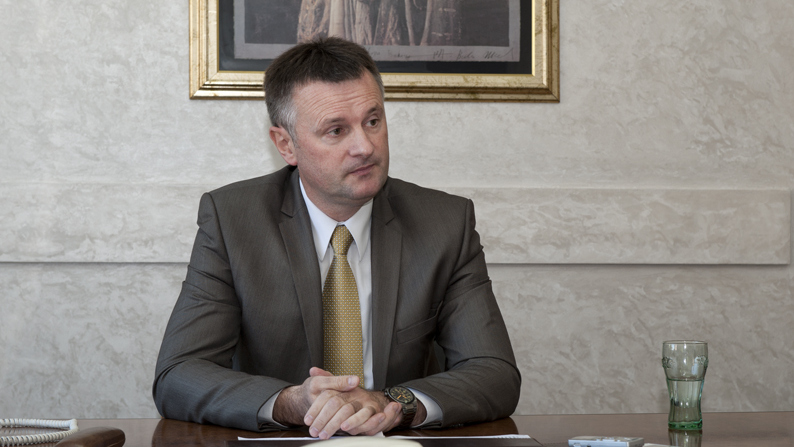

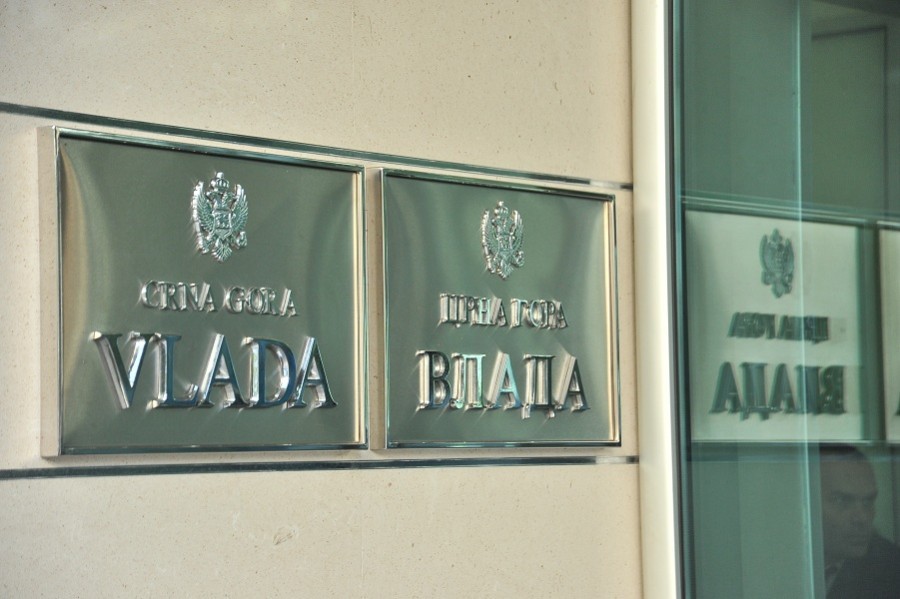
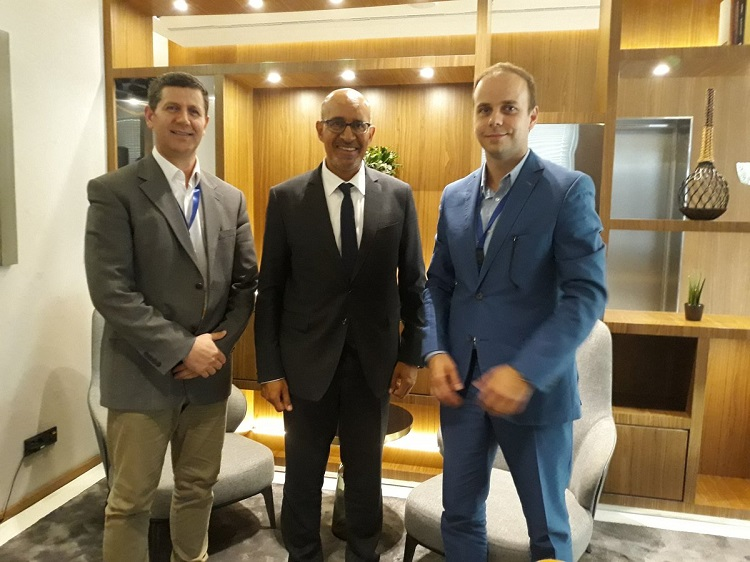
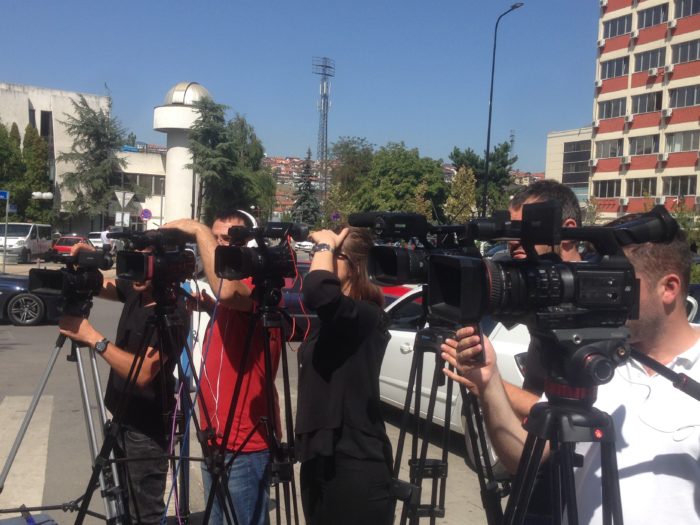
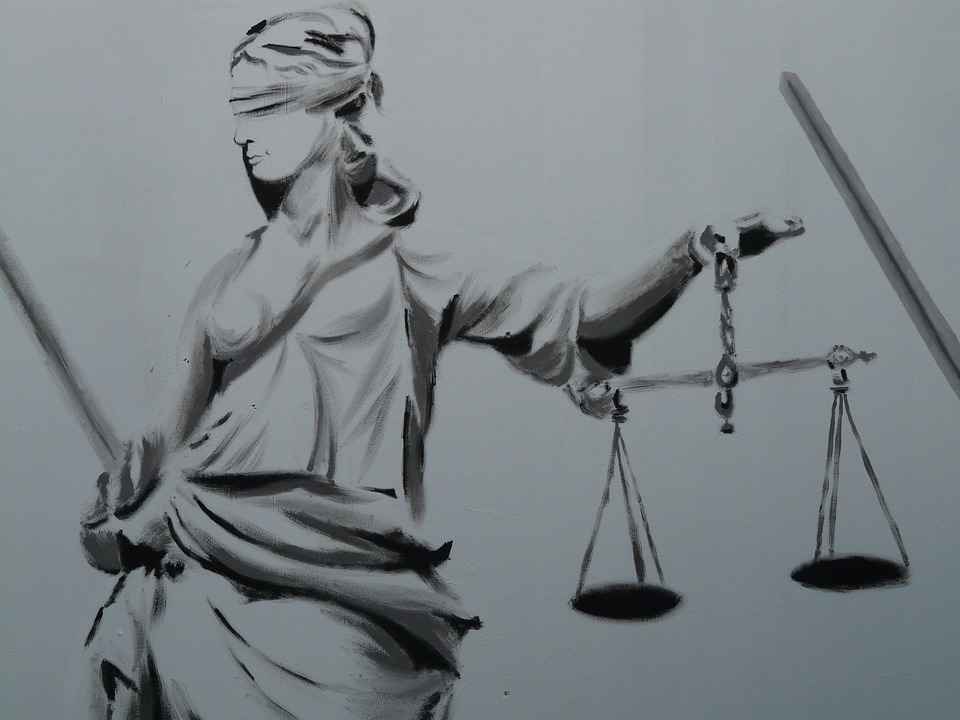

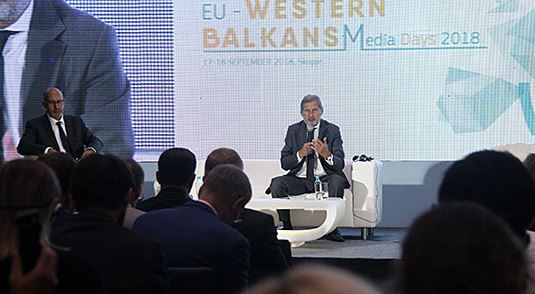
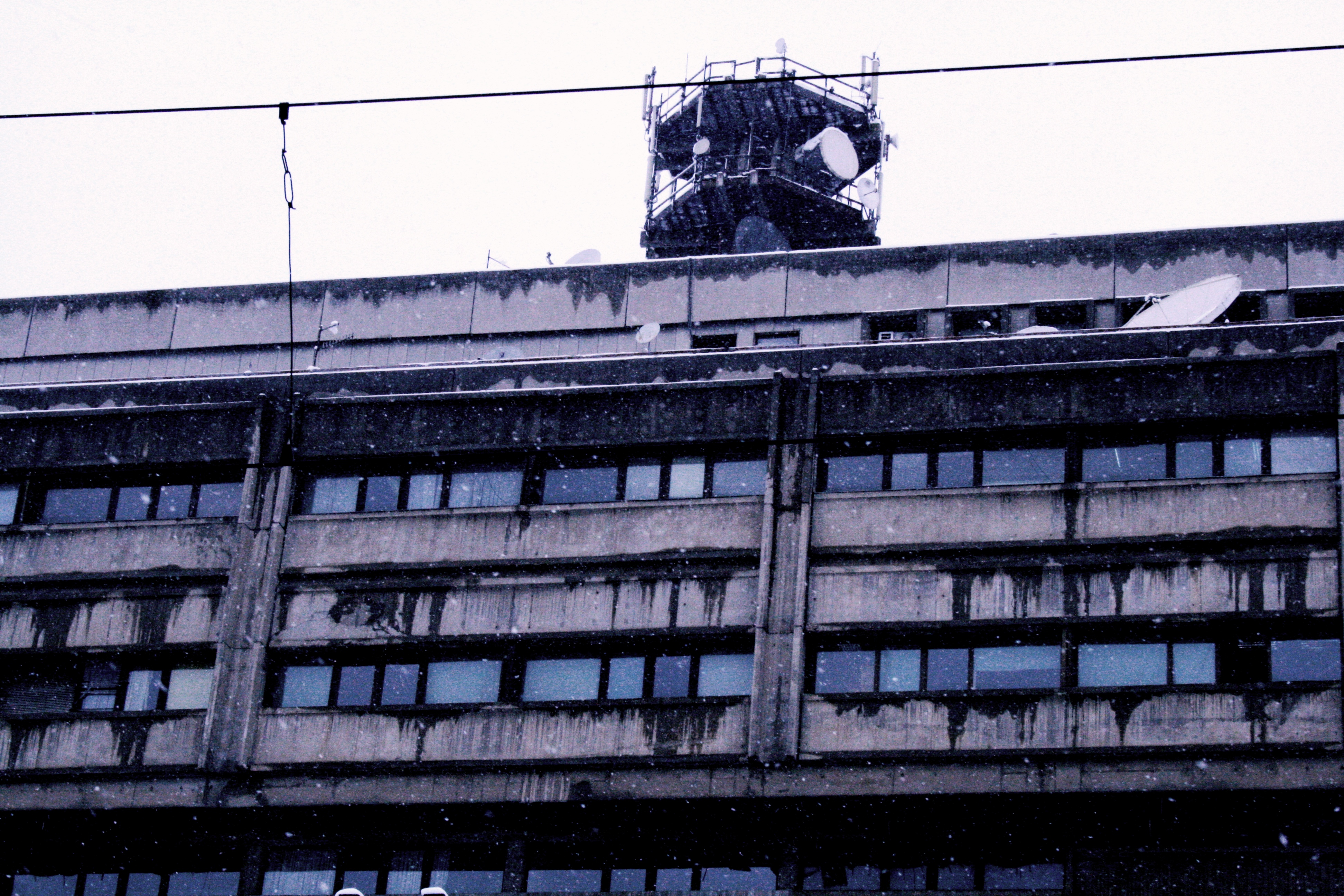
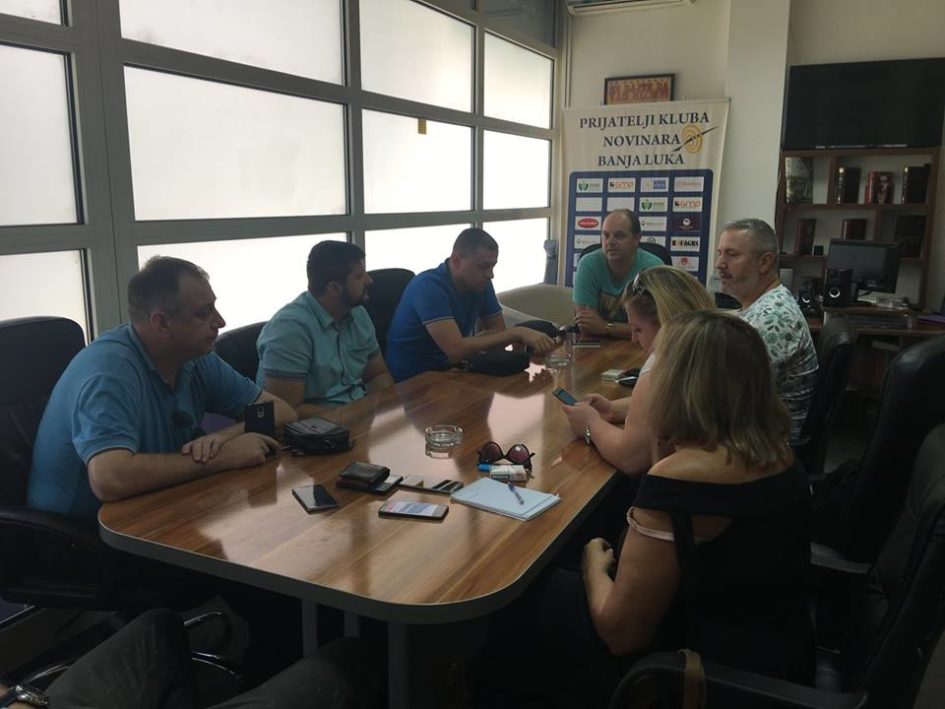
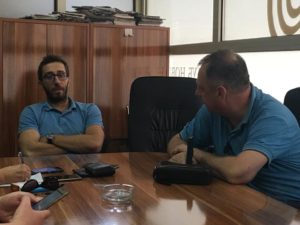 The participants of the meeting once again urged the police and the prosecution to bring the investigation to an end and to uncover the motive of attempting to murder Kovacevic and the ones who ordered of this murder, as soon as possible.
The participants of the meeting once again urged the police and the prosecution to bring the investigation to an end and to uncover the motive of attempting to murder Kovacevic and the ones who ordered of this murder, as soon as possible.